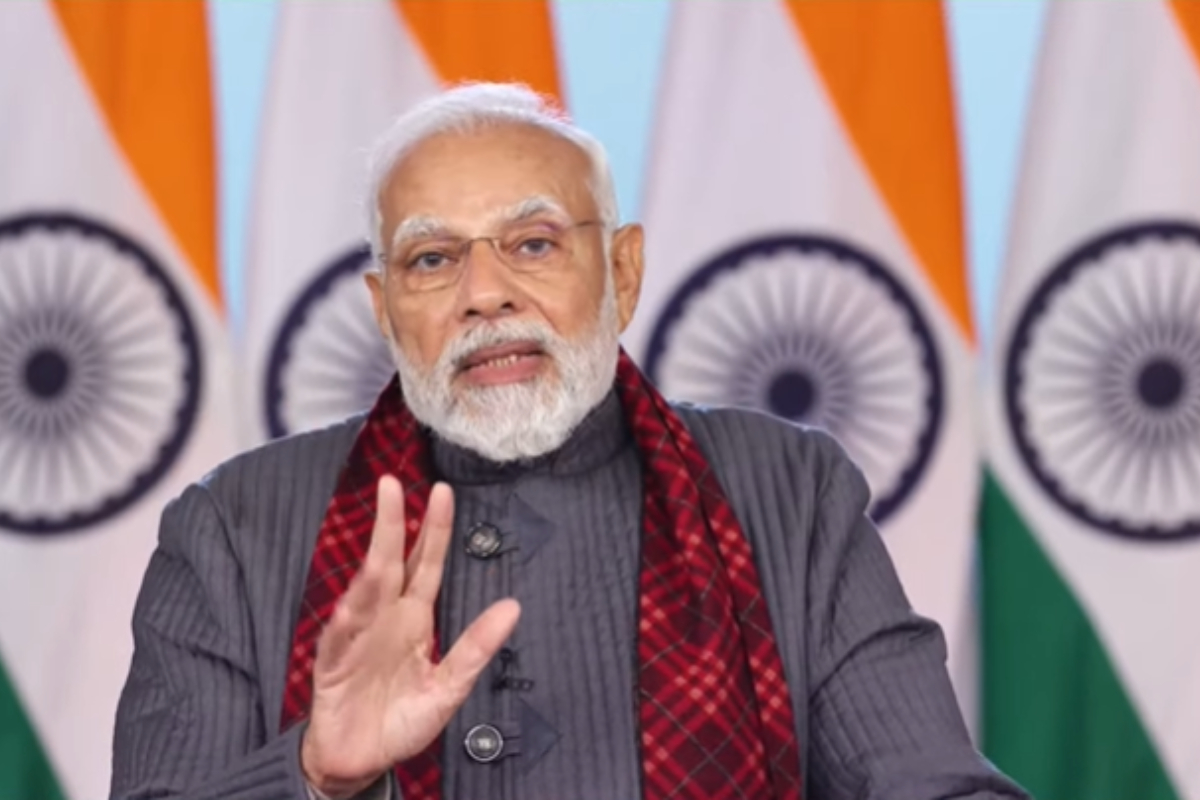Indian Prime Minister Narendra Modi is again at the receiving end of the Western world. They want to put spanners in the run-up to the 2024 general elections and prevent him from coming back to the office for the third term. PM Modi has maintained a neutral stance in the ongoing Russia-Ukraine war and has taken on belligerent China. Lobbies in western countries and Beijing are working overtime to stall his march to another victory in the next Lok Sabha polls due next year.
UK government’s media arm the British Broadcasting Corporation’s (BBC) documentary slandering PM Modi over the 2002 Gujarat riots – in which he has already been acquitted by India’s Supreme Court – reeks of malice and ulterior motives. The Government of India responded to this campaign of calumny against the prime minister by blocking its telecast and access to links containing it. It ordered all the social media sites to deplatform the documentary clips.
The second part of the said documentary is yet to be released. BBC’s anti-Modi bias stems from the very title of the documentary ‘India, The Modi Question’. It has tried to imply as if there is some unsettled issue pertaining to PM Modi vis-à-vis the 2002 Gujarat riots. It is being propagated despite the Supreme Court of India declared that it did not find even a shred of evidence of the complicity of the then Gujarat chief minister in the riots.
BJP won a landslide in recently-held Gujarat Assembly elections, proving that the people of the state are solidly behind the prime minister and see him as a leader who cares about them. So, what is the purpose of reviving the 2002 Gujarat riots after two decades?
The question that needs to be asked is why the British Foreign Office remained quiet since 2002 and released the said documents to BBC now. How on earth British Foreign Office could order a secret probe in a sovereign country like India? It was nothing but brazen interference in India’s internal affairs.
Western countries often harp on free speech but have banned telecast of Russian TV to prevent people from knowing about the Russian stance on the ongoing war with Ukraine. Russian TV is banned not only in Europe but it has also been forced to shut operations in America and some other countries as well.
In India, a debate has now started on social media while the opposition has launched an attack on the Modi government for banning the BBC documentary by invoking emergency powers under the new IT rules. The Congress party, which has been out of power at the Centre since 2014, has vowed to show the BBC documentary to people. Left parties too have joined the bandwagon. Mohua Moitra, the Lok Sabha MP of Trinamool Congress posted a link to the documentary on her Twitter timeline to oppose the ban.
ALSO READ: BBC documentary row reaches JNU; Administration bars screening
Let’s look into the record of Congress-led governments at the Centre that were involved in crushing freedom of expression. In 1977, then Prime Minister Indira Gandhi banned “Kissa Kursi Ka”, a film directed by Amrit Lal Nahta. The film was a scathing satire on her regime, her son Sanjay and Minister for Information and Broadcasting VC Shukla.
The Congress government did not stop at just banning the movie, it went a step ahead to destroy the ‘master print’ of the movie that was submitted to the Central Board of Film Certification (CBFC), popularly known as the censor board. It was then alleged that all the prints of the movie were confiscated and burnt at a Maruti factory at Gurugram near Delhi. It was done to obliterate all traces of the film that was critical of PM Indira Gandhi’s regime during the ‘Emergency’.
Banning ‘Kissa Kursi Ka’ and imprisoning the entire opposition during the Emergency – the darkest period of Independent India – was not the last sin of the then government. Famous singer Kishor Kumar was banned from All India Radio and Door Darshan by the minister for information and broadcasting VC Shukla as he refused to perform for the Congress.
Shashikant Kinikar, the biographer of legendary singer Kishor Kumar, wrote in the biography titled ‘Kishore Kumar – A Versatile Genius’, about how Sanjay Gandhi took umbrage at Kishor Kumar’s refusal to perform at a Congress rally in Mumbai. Sanjay Gandhi then ordered VC Shukla that Kishore Kumar’s songs should not be played on AIR and Door Darshan. Kishor Kumar was forced to bend and write a letter of support to the government that he was ready to perform in future such events.
ALSO READ: Jack Straw appeared on BBC documentary to woo Muslims, says Ashok Sajjanhar
Prime Minister Rajiv Gandhi banned the import of the Britain-based author Salman Rushdie’s book ‘Satanic Verses’ in 1988 – making the first country in the world to do so. Rushdie’s book was banned as it was deemed derogatory to Muslims and their faith. Rajiv Gandhi, who was battling corruption charges regarding the Bofors gun deal, bent backwards to order a total ban on the book.
With a history of stifling voices in the past, Congress is now posing itself as a champion of free speech. The release of the BBC documentary should also be seen in the context of nine states going to polls in 2023 followed by the 2024 general elections. There is an attempt to widen the chasm in society by playing on the fault lines of India. Both the West and Congress see the BBC documentary to target Modi and run a narrative that he is anti-Muslim. It may stoke sentiments and impact election results in 2024. It also intends to sully the image of PM Modi and paint him in a bad light internationally.
The second part of the documentary is awaited by Modi-baiters and cacophony in concert with the opposition parties against him will increase in the days to come.










